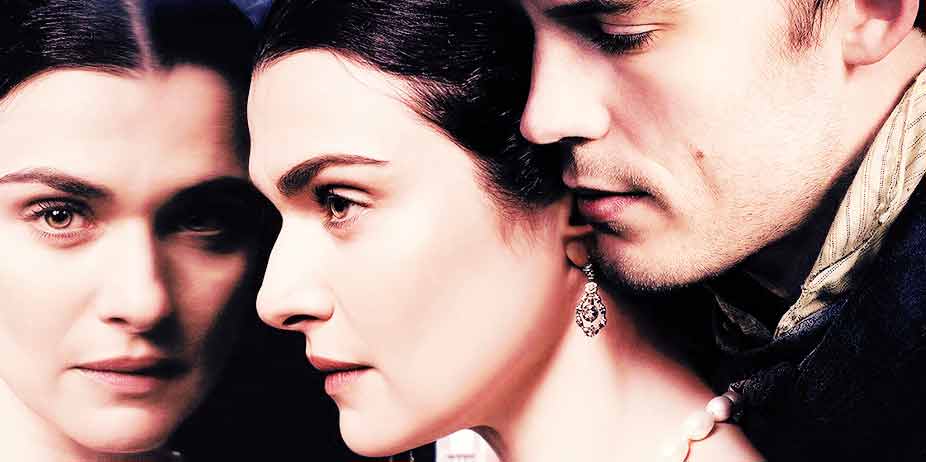 My
Cousin Rachel (2017)
My
Cousin Rachel (2017)
Daphne Du Maurier is best
known for her novel, Rebecca, a spellbinding
story of a woman without a name, haunted by the memories
of her husband’s first wife. Lesser known but beloved
among mystery novelist aficionados is My Cousin
Rachel, a story of moral ambivalence and suspicion,
fraught with an unreliable narrator who cannot determine
the truth of a young woman’s intentions.
After his parents’ deaths,
young Philip finds a home with his cousin, Ambrose.
Content on the farm, he grows up uninterested in
changing his fortunes, and fonder of home than school.
As an adult, Philip (Sam Claftin) returns home only to
watch his cousin’s health deteriorate. The physicians
send him abroad to take the air, and there, he soon
meets and falls in love with an Italian woman. Philip
receives regular letters… and then none, until one
arrives smuggled out of the house that contains a belief
that Rachel is trying to “kill” Ambrose. Soon after, he
dies.
Determined to find out the
truth and punish this woman if she murdered his cousin,
Philip offers her use of the country house… but when she
arrives, Rachel (Rachel Wiesz) is not what he expected.
Beautiful, charming, and sincere, she has a stout heart
and gentle nature, shares her opinions but also keeps
secrets, is a paradox in his mind he cannot figure out…
and soon, he falls in love with her. How inconvenient,
if she is a murderess…
Since I have not read the
novel, I went in with preconceptions about how the story
would unfold and expected something other than how it
turned out; the ambiguities rage throughout, which makes
for a tense mind-bender, as you first consider her
guilt, then her innocence, then her guilt again. The
hero also plays the role of a villain, since you cannot
be sure his suspicions (and subsequent treatment of
Rachel) are sincere; he can be both an utter fool, and a
total delight as he either plays into her hands or
manipulates her.
Rachel is an enigmatic leading lady, and the audience is no surer of her than Philip, while Holliday Grainger plays a sweet supporting role of the savvy, wise and often overlooked Louise Kendall, daughter of Philip’s lawyer. She is a voice of reason but also jealousy as his delusions (or are they accurate suspicions?) unfold. Everything about the film drips with intrigue, although I found the overt sex scene distasteful and less classy than the rest, which devotes much of its screen time to playing with light and darkness, to aesthetic appeal, and to the natural perils of their surroundings. I’m not sure how it measures up against the book, but I won’t soon forget it.
Sexual Content:
A man enters a woman’s bedchamber and infers he’d
like her for his birthday present (they climb into bed
together); he unbuckles his pants, lays her down in a
field of bluebells, and has sex with her the next day
(we see her face / hear his pleasure, and see movement
for at least thirty seconds); suspicions revolve around
extra-marital affairs; a woman says of a man, “he likes
men.”
Language:
One f-word, scattered profanities.
Violence:
A man and his horse almost die when a cliff path
collapses under them; a man becomes aggressive with a
woman in a stairwell when she refuses his romantic
advances and closes his hand around her throat, breaking
her necklace; we see a body at the bottom of a cliff,
and an injured horse (from a distance; the animal is
shot / killed in the background).
